Speculations
by Joanne McNeil
-
 Read Only Memory: Joanne McNeil on Chris Marker’s Immemory Project
Read Only Memory: Joanne McNeil on Chris Marker’s Immemory Project
“I’ll find you,” Chris Marker told Damon Krukowski and Naomi Yang. The first time they met—New Year’s Day, 1999, at the Café de Flore in Paris—they had no idea what he looked like until he beckoned to them. There weren’t photos of him anywhere; he’d send illustrations of his cat, Guillaume-en-Égypte, if anyone asked for a picture. Krukowski and Yang wished to collaborate on an English language edition of the director’s CD-ROM project, Immemory. He could be difficult to reach but liked musicians and made time for the duo—formerly of Galaxie 500—who have performed as Damon & Naomi since 1991. … Read more
-
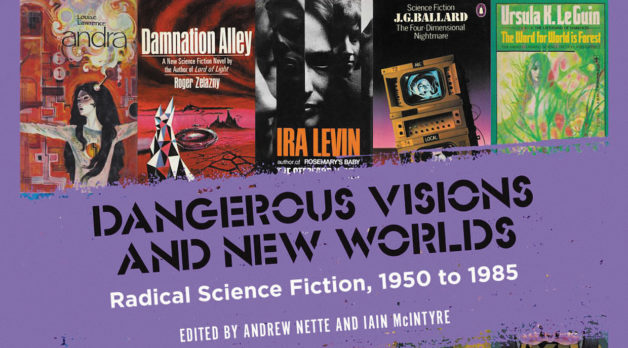 Science Fiction in a Time of Crisis
Science Fiction in a Time of Crisis
In 1968, Judith Merril and Kate Wilhelm planned to run an advertisement in a science fiction magazine with a list of authors announcing their opposition to the Vietnam War. But when they reached out to fellow members of the Science Fiction Writers of America to add their names, Merril and Wilhelm were shocked. There were significant numbers of vehement pro-war authors in the community, and they also wished to share their views with the science fiction-reading public. When the advertisement ran in Galaxy Science Fiction, it covered two full pages. On the right, the names of authors including Ursula K.… Read more
-
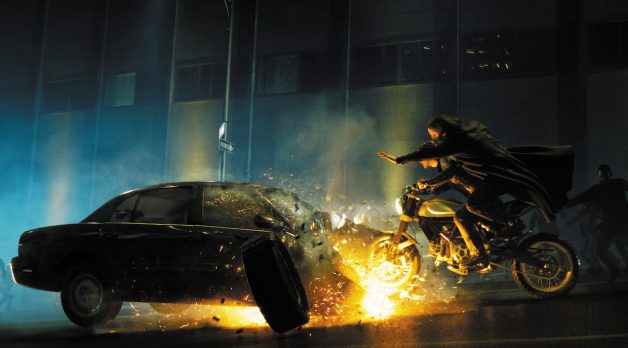 Freedom as a Preset: Joanne McNeil on Metaverses Past and Present
Freedom as a Preset: Joanne McNeil on Metaverses Past and Present
“What we’re selling is freedom,” says a digital media executive played by Demi Moore, of the promise of virtual worlds in Disclosure (1994). “We offer through technology what religion and revolution have promised but never delivered: freedom from the physical body; freedom from race and gender, from nationality and personality, from place and time.” Based on a Michael Crichton novel, the movie explores in classic Crichton fashion a theoretically possible but highly unlikely scenario—in this case, a 32-year-old single woman who sexually harasses her married 50-something male subordinate; it is also one of a number of features from the 1990s… Read more
-
 Twilight of the Robots? Androids in Contemporary Cinema
Twilight of the Robots? Androids in Contemporary Cinema
In August 2021, Elon Musk announced that his company is prototyping a humanoid robot called the “Tesla Bot.” He shared the stage with an ecstatically dancing figure that was obviously a human in a robot costume. Musk assured the audience that eventually the robot “will be real” and will derive from the AI system used in Tesla vehicles. The cars are already “semi-sentient robots on wheels,” Musk said, in yet another of his grandiose claims intended to disguise their minimal autonomous driving capabilities. It all appeared like a desperate attempt to siphon some of the nervous excitement that Boston Dynamics… Read more
-
 Dial-up Connections: All About Lily Chou-Chou at 20
Dial-up Connections: All About Lily Chou-Chou at 20
Twenty years after the release of All About Lily Chou-Chou, I can’t think of a film that better depicts what first drew people to the internet, and certainly none that matches its expressive use of content-type header errors. Director Shunji Iwai evokes the gaps and hesitancy in early internet communication through the depiction of character encoding across the screen. Posts on an online forum devoted to Lily Chou-Chou, a mysterious pop singer, first appear in a mojibake jumble of accented Latin characters. We can hear the clack of an old keyboard and another tap to refresh. The BBS code is… Read more
-
 Meet Your Driver: Film, Gig Workers and Big Tech
Meet Your Driver: Film, Gig Workers and Big Tech
“When you walk into an Amazon fulfillment center, it’s like walking into the Chocolate Factory, and you won a Golden Ticket,” says Janelle, one of the employees featured in videos posted to Amazon’s YouTube page. The introductions share a format, with titles like “Meet Ricardo” and “Meet Ron, military veteran and Amazon Delivery Service Partner.” These documentary-style videos sometimes air as advertisements on streaming services. One of the people interviewed just had a baby. Another narrates in American Sign Language. Janelle talks about providing for her young son. She says he loves packages from “Mommy’s work.” He appears briefly in… Read more
-
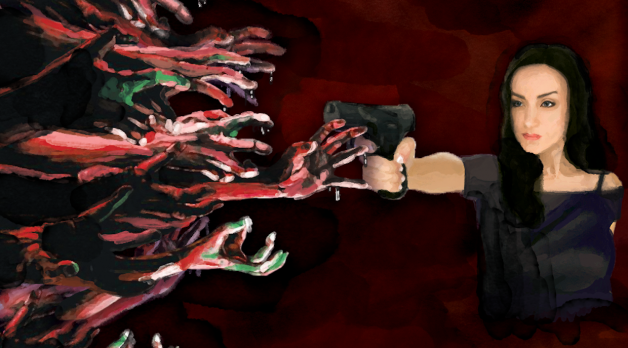 The Other Horror in Zombie Movies
The Other Horror in Zombie Movies
The asymmetries of combat in a zombie movie are unlike any other: One must shoot to kill because only one side fights—the other side is merely hungry. The fate of humanity hinges on an efficiently delivered death blow. Characters can outrun the monsters or grab a knife in the kitchen for self-defense. Or, if the movie was made in America, there’s probably a gun. Only one side can handle tools. It is right there on the movie posters in which actors typically appear with their primary weapons. Brad Pitt has an assault rifle on the World War Z (2013) poster,… Read more
-
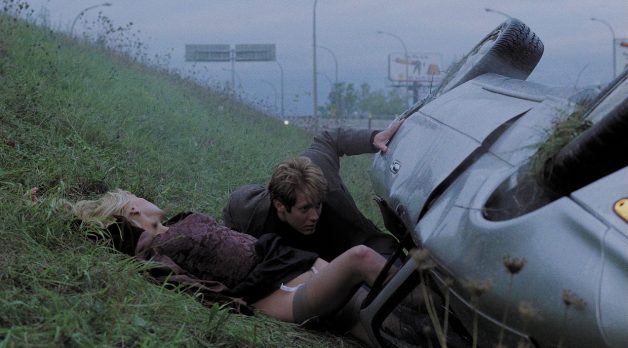 Ballard in the Rear View
Ballard in the Rear View
In his autobiography, Miracles of Life, J. G. Ballard reminisces about a derelict casino he came across in his youth. The abandoned building gave him the sense that “reality itself was a stage set that could be dismantled at any moment, and that no matter how magnificent anything appeared, it could be swept aside into the debris of the past.” It is a canny summation of the familiar visuals in his fiction. Ballard was obsessed with facilities like hospitals and airports, places with sterile obstructive architectures and machine-like routines for individuals to perform, and theaters of reality that break down… Read more
-
 Quarantines and Future Dreams
Quarantines and Future Dreams
Contact—yes, the 1997 Robert Zemeckis blockbuster—isn’t about a pandemic. It’s not celebrating an anniversary year or set for rerelease, nor is it a stone classic like Alien. But this moment of quarantines and uncertainty makes for an excellent time to revisit it. What feels rare about the movie is its depiction of solitude rather than loneliness. I suppose this is true of many astronauts on the screen, but this one is unique because Ellie Arroway—the main character—experiences solitude continuously; it is more than just her journey in the third act. Actor Jodie Foster is routinely alone in the film, in… Read more
-
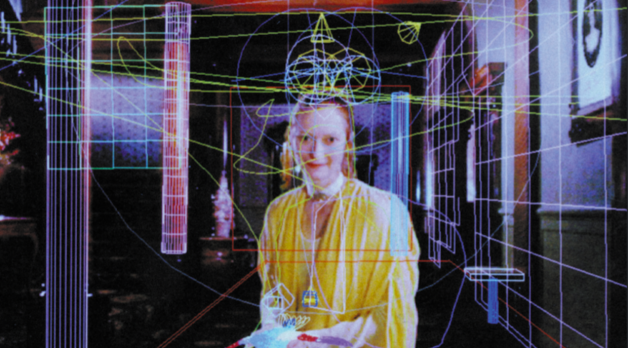 Conceiving the Future: The Prescient Lynn Hershman Leeson
Conceiving the Future: The Prescient Lynn Hershman Leeson
There’s no question that Lynn Hershman Leeson is a prescient artist and filmmaker. Prescience is even a theme in her work, one she grapples with as a double-edged sword. Impossible to measure except in retrospect, it is a lonely quality to have in the present. After Leeson rocketed to art stardom following a 2014 career retrospective at the ZKM Museum of Contemporary Art in Karlsruhe, Germany, her success was widely praised as “overdue”—another word that culture’s Cassandras are used to hearing. It seems unwise to disentangle her originality and influence from her tenacity and patience. Her 2019 interactive installation “Shadow… Read more
